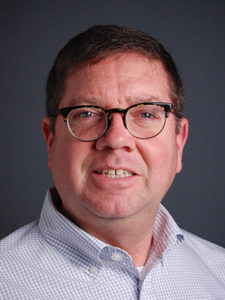By Tony Rankin
Minister of pastoral care, First Baptist Church, Nashville
 Regardless of how real you think COVID-19 is and regardless of where you stand on the political debate or spin of the news that attempt to define the legitimacy of the virus, the COVID blues are valid.
Regardless of how real you think COVID-19 is and regardless of where you stand on the political debate or spin of the news that attempt to define the legitimacy of the virus, the COVID blues are valid.
COVID-19 has caused our culture to make adjustments, forced each of us to make personal decisions that have been in conflict with 50 percent of all other Americans, consumed our conversations, dictated our news programming and resulted in most of us being like emotional sponges — soaking up everything.
Ordinarily 25 percent of all Americans experience a significant depressed mood at any given time. The pandemic has increased the depression and anxiety level of most individuals.
The uncertainty of the medical debates has bred uncertainty which serves as an indicator of the blues. In addition to uncertainty, the COVID blues can be defined through a lack of motivation, a constant irritability, a loss of interest in activities that used to be enjoyable, and a relational disconnect because of social and emotional distancing.
Part of the melancholic emotional response to COVID seems to be related to the difficulties in decision making. There have been some individuals who have been afraid to choose the wrong move.
Another group of persons have been fearful of making a decision too quickly. A significant percentage of people have questioned whether or not they had what it takes to survive difficult days. Some individuals were initially nervous to “handle the unknown.”
Think about these issues that weren’t avoidable with COVID-19.
Initial warnings became more real. Initially it was easy to assume it wouldn’t be as bad as it was in China, Korea, Italy, New York, or New Orleans. Occasionally we avoid warnings because we are fearful of what might really happen, don’t want to be told what to do, or don’t believe the news, doctors, or governmental leaders. The pictures and video images of ambulances lining up, white tents being erected in various parts of Tennessee, and daily warnings reminded us of the serious nature of the hidden virus.
Distant illness became realistic. Soon COVID-19 became the illness of a friend, neighbor, colleague, church member or a family member who was struggling with the dreaded test result or symptoms of COVID. The reality of the pandemic is now everywhere. Accepting the fears of the unknown and not pretending it wasn’t near you caused a pause to the question of the realness of a pandemic.
Dealing with the sameness. Remember when you used to dread going to work, sitting in traffic, rushing home to fix supper, and scrambling to get to dance practice, soccer scrimmages, or a baseball game? Currently we wish we could be on the move, but then we are asked to stay home. So being stuck made us get bored with nothingness, get tired of staring at the same walls, and having plenty of time to wish we were too busy again. A lack of structure resulted in a lack of motivation.
Relationship changes. COVID-19 has resulted in fewer conversations and when verbal interactions do occur, there is less depth in the exchanges. The lack of face-to-face and personal conversations results in a personal flatness that elicits a negative attitude. Virtual worship services and online small groups and Bible studies have been efficient, but not personal.
Time will prove that individuals’ loss of personal interaction may develop poor habits of not returning to corporate worship and small group connections. These losses of connection, skin time including handshakes, high fives and greeting hugs have resulted in a loss of personal and spiritual intimacy.
Bottom line — COVID-19 has resulted in numerous losses which has caused real blues. At this point the issue is not mandated mask wearing, regathering of congregations, virtual educational options, social distancing, the spin of news stories or debating the number of illnesses and deaths. We, as a society, need to look at recapturing the very things that will combat the blues — hope, connection and meaning. Be hopeful for the future and act like it. Become excited about something meaningful and talk about it. This will connect us. B&R — Rankin also is a clinical therapist in Antioch.

